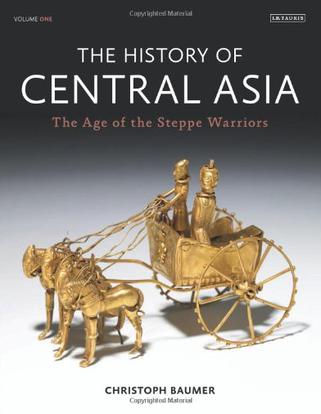目录
Introduction * Geography, Climate and Prehuman History of Central Asia * On the definition of Central Asia * The interdependence of geography, climate and history * The Settlement of Central Asia in the Palaeolithic * 'Out-of-Africa' or 'Out-of-Asia'? * The earliest settlements of Central Asia * The birth of art * The bow, an almost 20,000-year success story * A Global Climatic Warming Ushers in the Mesolithic * The retreat of the glaciers * Petroglyphs as information sources * Microliths * The Economic Revolution of the Neolithic * The primary and secondary Neolithic revolutions * Hunters and gatherers in the mountains and on the waterways of inner Central Asia * Agriculture and early settlements in southern Central Asia * The northern steppes of Central Asia - meeting point of hunters and herders with farmers * The Chalcolithic and the Early Bronze Age * The division of early history and the beginnings of metallurgy * The first cities of Central Asia in southern Turkmenistan * Agrarian and stockbreeding cultures in northern Central Asia * Sun deities and horse sacrifices * The Middle and Late Bronze Age * The Bactria-Margiana Archaeological Complex BMAC * Indo-European mummies in north-western China * The steppes of Central Asia: 'origin' of the Indo-European languages? * Mysterious stone steles of the Okunev Culture in Khakassia * From the Volga to the Yenisei: homeland of the Indo-Iranians? * Karasuk and the cultures of khirigsuurs and slab graves during the transition to the Iron Age * The Iron Age * Nomadic horsemen in north-eastern Central Asia * Nomadic riding peoples on the north-western periphery of Central Asia * Greeks in Central Asia * The campaign of Alexander the Great * The Greco-Bactrian Kingdom * Bactrian art of the steppe, Hellenism and Zoroastrianism * Outlook * Appendices * The most important prehistoric and early historic cultures of Central Asia * Bibliography * Photo credits * List of maps * Acknowledgements * Index
【展开】
【收起】
内容简介
The epic plains and arid deserts of Central Asia have witnessed some of the greatest migrations, as well as many of the most transformative developments, in the history of civilization. Christoph Baumer's ambitious four-volume treatment of the region charts the 3000-year drama of Scythians and Sarmatians; Soviets and transcontinental Silk Roads; trade routes and the transmission of ideas across the steppes; and the breathless and brutal conquests of Alexander the Great and Chinghiz Khan. Masterfully interweaving the stories of individuals and peoples, the author's engaging prose is richly augmented throughout by color photographs taken on his own travels. For all the complexity of the history, Dr. Baumer, a noted authority on Central Asia, never loses sight of the sweeping grandeur of its overall setting. Volume 1 focuses on the geography of the area now occupied by present-day Kazakhstan, Uzbekistan, Turkmenistan, Kyrgyzstan, Tajikistan, northern Afghanistan, western and central Mongolia and parts of southern Russia and northern China. Discussing the changing climates of the Palaeolithic, Mesolithic, Neolithic and Bronze Ages, the author explores subjects as diverse as glacial retreat; the invention of the wheel; the legendary Cimmerians and Amazons; Hellenism and Zoroastrianism; and the Oxus Treasure. Future volumes will explore the later historical periods of the region.
"This, in my judgment, is a most impressive book. Dr. Baumer has a wide-ranging knowledge of his subject, an extensive on-the-ground acquaintance with Central Asia itself, and an ability to convey that knowledge in a most interesting and comprehensible way. He has a gift for the striking observation. For example, he remarks on a curious parallel between a Central Asian story about a hero's sword having to be thrown into the sea and the rather similar tale about Excalibur, commenting that this is perhaps not merely coincidence: might it have something to do with the Sarmatian soldiers sent by Marcus Aurelius to guard Hadrian's Wall? Another excellent idea is the periodic insertion of 'excursuses,' on such topics as Roy Chapman Andrews the 'dinosaur hunter,' the Siberian collections of Peter the Great, and the Amazons. No history of Central Asia, or indeed of anywhere else, can ultimately claim to be 'complete.' But this one is certainly very comprehensive indeed, far more so than any other recent work of which I am aware. The publication of this volume, and of its successors too, seems to me to be a very valuable enterprise indeed." – David Morgan, Professor Emeritus of History, University of Wisconsin-Madison, and author of The Mongols
【展开】
【收起】
下载说明
1、追日是作者栎年创作的原创作品,下载链接均为网友上传的的网盘链接!
2、相识电子书提供优质免费的txt、pdf等下载链接,所有电子书均为完整版!
下载链接
